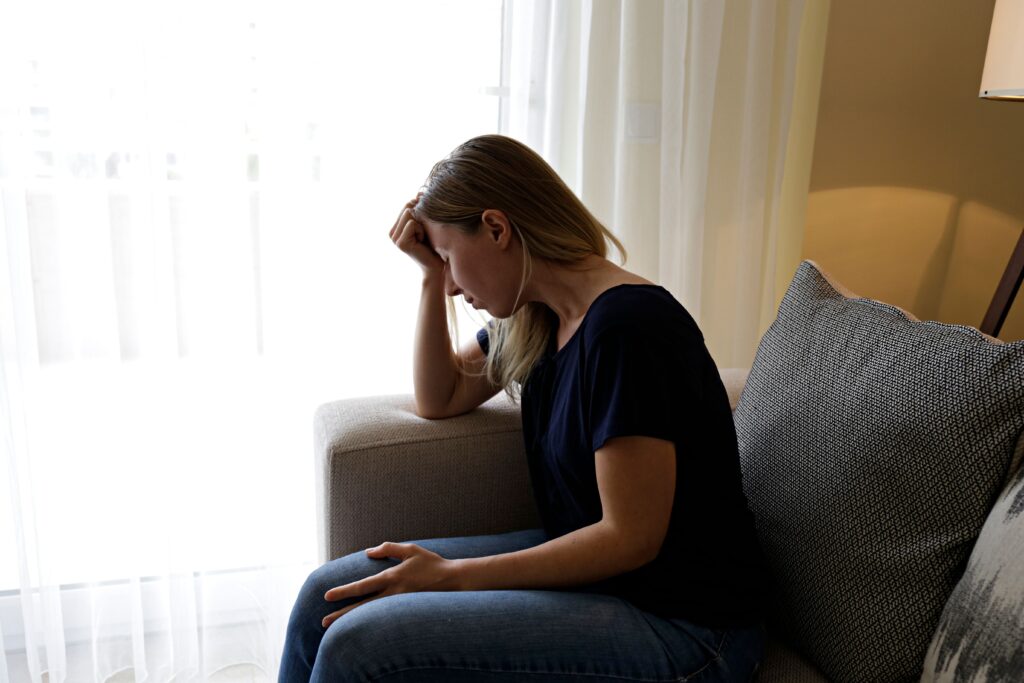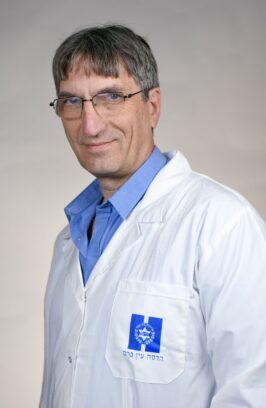Hadassah
Health + Medicine
Feature
Hadassah Clinic Tackles the Lingering Effects of Covid-19

Just when it seems to those who have recovered from Covid-19 that the virus has thrown its final punch, it delivers one more. Preliminary studies in several countries, including the United States and Italy, estimate that anywhere between 10 and 88 percent of those who have recovered are suffering chronic and debilitating disabilities. Because these ailments can linger for weeks or even months, this phenomenon is variously referred to as long Covid, long-haul Covid or chronic- or post-Covid-19 syndrome.
The Hadassah Medical Organization in Jerusalem is tackling this problem head on through a post-Covid outpatient clinic that was opened at Hadassah Hospital Ein Kerem in October.
“Evidence was mounting that Covid-19 isn’t simply an acute infection that patients can forget once they’re no longer virus-positive,” said Dr. Neville Berkman, director of Hadassah’s Institute of Pulmonology and head of the adult and invasive pulmonology unit. “In around half of some 3,000 people hospitalized at Hadassah for Covid-19 infection, we’re seeing long-term illness with wide-ranging medical issues.”
Dr. Berkman was tapped to head the clinic because most of the patients who first described long-term symptoms presented with respiratory problems.
Listen to Your Doctor
Go behind the scenes at Hadassah Medical Organization with Hadassah On Call: New Frontiers in Medicine, a podcast hosted by award-winning author Benyamin Cohen. March’s episode features Dr. Dimitrios Karussis, head of Hadassah’s multiple sclerosis center, discussing breakthroughs in his research on using stem cells to treat MS. In April, Cohen will talk with one of the hospital’s top infertility specialists. And catch up on previous episodes, including one with Dr. Neville Berkman, who discussed long Covid and the new clinic.
“After Covid’s first wave in Israel last spring, we were seeing dozens of recovered patients who tested negative for the virus but were complaining of shortness of breath,” explained Dr. Fares Darawshy, a respiratory and internal medicine specialist at Hadassah who was among those who proposed a multidisciplinary long-Covid clinic, and now serves as one of its four physicians. “When reports began appearing in the medical literature about long-term respiratory complications in post-Covid-19 patients, we realized that we were seeing a new disorder—long Covid.”
It quickly became clear, however, that long Covid does not restrict itself to breathing difficulties. Hadassah’s pulmonologists found that many of the medical center’s discharged coronavirus patients were battling physical problems affecting their lungs as well as their hearts, muscles and/or digestive systems. Others were displaying neurological symptoms ranging from fatigue, dizziness, headache and loss of smell or taste to cognitive dysfunction and sleep, mood and memory disturbances. Many were struggling with mental health issues, including anxiety and depression. The United States Centers for Disease Control and Prevention has listed over 15 reported symptoms of long Covid, with fatigue, cough, shortness of breath and chest and joint pain the most common.
To address such a wide span of symptoms, the clinical team at Hadassah comprises a range of medical and paramedical specialties. The clinic currently consults some 25 patients a week, a number that is expected to increase dramatically when additional full-time staffers are allocated. Treatment for patients, whose average age is 47, begins with a full pulmonary, neurological, psychological and functional evaluation.
Among the clinic’s first patients was a 69-year-old Jerusalemite with diabetes (he and other patients in the article asked to remain anonymous). Ventilated for three weeks in Hadassah’s Covid ICU last May, he thought he had defeated the virus. Twelve weeks after he left the hospital, however, he returned with life-threatening blood clots in his lungs and crippling weakness in his arms and legs. The clots are being treated by the clinic’s pulmonologists, and physical and occupational therapists address the muscle weakness. His diabetes, which had slipped out of control, is being stabilized by endocrinologists. Meanwhile, with the help of psychologists, he is struggling to come to terms with everything happening to him. “He’s much improved, but with long Covid so new to medicine, it’s too early to know whether and for how long his remaining complications will persist,” said Dr. Berkman.
Update on Covid Care
In late January, following a surge in very sick children with coronavirus, the Hadassah Medical Organization opened Israel’s first pediatric intensive care unit for Covid-19 patients. The youngest patients in its eight-bed unit have been only a few months old. Located on the same floor as the general pediatric ICU, it is completely isolated and protected by double doors.
Another patient in treatment at Hadassah’s long-Covid clinic is a 27-year-old mother from Jerusalem with a toddler at home. “She was among the first patients hospitalized at Hadassah for Covid-19 last March,” said Dr. Berkman. “All these months later, she experiences ongoing pain in her chest and joints, difficulty in concentrating and has problems with memory sufficiently severe to affect her functioning—and, most disturbing of all to her, to caring for her 18-month-old daughter.” She comes to the clinic for physiotherapy to help with her joint pain as well as psychological support.
Possibly the first medical condition whose name and symptoms were introduced via social media, long Covid was largely described in posts from those experiencing it. Sufferers continue to post about their experiences on private Facebook groups and other online spaces, even organizing patient-led studies and surveys. “Patients with long Covid suffer greatly,” said Dr. Darawshy. Today, there are few answers to the specific causes of their suffering, a definitive program of care or even how long the symptoms will continue.
“One of the first things we noted is a considerable discrepancy between the distress that patients experience and the results of objective lab tests,” he said of the series of evaluations completed by each patient when they first come to the clinic. “The results from the tests often aren’t grossly abnormal. Despite the knowledge and experience we’ve accumulated these past months, we can’t yet explain this.”

“These aren’t complications that we see after comparable illnesses, such as acute influenza or bacterial pneumonia,” said Dr. Berkman. “We don’t yet know whether they result from the virus even though it’s no longer present, or from an aberrant or overactive immune response, from something akin to post-traumatic stress syndrome, from a chronic fatigue-like illness—or from something else entirely. What we do know about long Covid disability is that it seems it’ll be with us for quite a while.”
Findings from Hadassah’s clinic population (which, in this early phase, comprises only those who were hospitalized at Hadassah for Covid-19) confirms preliminary studies worldwide that long-term health repercussions are more likely among at-risk groups and those who were severely ill with the virus. But Dr. Berkman stressed: “All Covid patients are at risk for long Covid, including those whose illness seemed mild.”
With no proven drug regimen and no data about possible benefits of vitamin therapy or nutrition, physicians everywhere are trying to develop protocols to help this rapidly expanding group of patients. Extrapolating from their experience with acute respiratory failure and from what has been learned from other coronavirus illnesses, such as MERS and SARS, Hadassah’s long-Covid physicians use proven rehabilitation techniques. With extreme caution, they have successfully explored steroid treatment, anticoagulants and bronchodilation in selected severely ill patients. Physicians also believe it imperative to address issues such as social isolation, financial insecurity and family stresses, which have escalated with extreme illness and the pandemic lockdowns. And they are documenting the patients’ conditions with chest X-rays, lung-function tests, echocardiograms, sometimes CT scans and more to evaluate and monitor physiological abnormalities.
“While some of our patients need medical or surgical intervention, most need rehabilitation—and all of them need our empathy and reassurance,” said Dr. Darawshy. “It’s taking time, but we’re seeing some positive results.”
Wendy Elliman is a British-born science writer who has lived in Israel for more than four decades.










 Facebook
Facebook Instagram
Instagram Twitter
Twitter
Leave a Reply